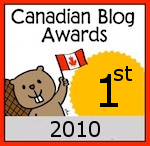Earlier this week I translated and commented on part of an Aporrea article on Venezuelan political scientist Haiman el Troudi and his recommendations for what the elusive creature of Hugo Chavez’s visions should look like. Here’s more:
Capitalism is broken. El Troudi is convinced that capitalism is not a viable model, “because it claims we can all be rich, but for that, we need five Earth-like planets so that we all can achieve it!”
He listed a series of “anti-values” which capitalism promotes, and which 21st Century Socialism must displace with its own distinctive traits: exploitation of human beings, consumerism, the cult of materialist fetishism and corruption, etc.
According to El Troudi, the goal of 21st Century Socialism is to drive society upwards, “so that we can all be middle class.” But he emphasized that this class must be removed from the anti-values of capitalism.
He pointed out that the model sought for Venezuela, seeks to build a new humanity and a new society.
He called for a system of infinite democracy, based on popular power; social inclusion, protection and security; harmonious decentralized development of all territories (so that all those living in them will have equal opportunities); internationalism (so that other countries can also apply the model); and an economy with new productive relationships.
IT SHOULD NOT BE:
- State capitalist (it should move toward socialized production companies);
- Paternalistic populist (it must eliminate the “Father knows best” state culture);
- Excessively centralized democratically;
- Castrator of popular participation;
- Totalitarian;
- Messianic;
- A military-industrial complex (there must be no confusion with necessary defence budgeting);
- A one-party state;
- Based on extrapolation of models;
- Marked by a division between the ruled and ruling classes.
As you can see, El Troudi’s vision is a practical one. It owes not so much to “Marxist” theory as it does to the simple realization that the old static political models are all clunky–including the old capitalist one!
Moreover, it is rooted in a realization of what went wrong with the old political system in Venezuela. This system was centralized, such that Caracas held sway over all regions of the country, dictating to them rather than responding to their wishes and needs. The face in power changed often, as did the party colors behind it, but the nature and behavior of that power did not. Always, the new face was presented as a “messiah”, a Dear Leader come to save the day, characterized by a mini-cult of personality designed to pacify the masses by assuring them that this time, “change” would come. Meanwhile, again, the people’s needs were ignored as oil money was squandered and disappeared, and local industry and farm production sank while imports rose. 20th-century capitalism is clearly to blame for all this misrule, as a brief slice of history will show.
After oil was discovered in the area around Lake Maracaibo, Venezuela went from an agrarian economy and net exporter of food (primarily cacao) to an industrialized one, with some 80% of its food imported by large multinational firms. This benefited the owners of the corporations and their local partners, but not the consumers; food costs shot up even as the purchasing power of the bolivar went down. Junk food consumption rose; nutrition lagged. Fresh local produce became virtually unavailable as farmlands fell idle. The campesinos who used to work the land were displaced as absentee landlords took it away from them; most landed up in the slums that creep up the hillsides around Caracas. This only contributed to the centralization problem, not to mention the poverty problem. Can anyone be surprised that this is a populace with a “messiah complex” in their politics? Or that, by 1989, it was all beginning to fall apart? Or that when Lt.-Col. Hugo Chavez launched his failed coup attempt in ’92, there was no condemnation, but rather great popular support for the jailed paratroop commander? (This last, while it has been ascribed to messianism, is actually nothing of the sort. It is a popular response to two things: Chavez’s willingness to try something radical, even if it failed; and his taking responsibility for it when it did fail. No “democratic” Punto Fijo president would ever have declared himself publicly responsible like that. He was, in short, a radical departure from messiahs-as-usual.)
Incidentally, Venezuela knows from totalitarianism, too; just ask the gentleman who blogs as Gringo in Venezuela. He has an excellent little history lesson in Venezuelan dictatorships, faux-democracy, and their connections to Big Oil at his site. (He calls them “democracy prevention”, as accurate a term as any I’ve ever seen.) So it’s not surprising that 21st Century Socialism wants to get away from that pitfall. The history of authoritarianism and its US backers shouldn’t be lost one anyone. And neither should the fact that far from being enemies, capitalism and fascism are actually close allies. (The corollary, of course, is that socialism and democracy–which are the economic and political sides of the same coin–are the antidote.)
Paternalistic populism too gets a short shrift, mainly because whatever its benefits, it has a sad way of failing to outlive the benevolent father figure. Worse, it’s been done–by right-wing capitalists looking to buy support. Why adopt the behavior of one’s worst enemy?
By now, it should be obvious why Haiman el Troudi refers to capitalist tenets as “anti-values”. There is only one thing they are not against, and that is money. This monomania makes them all extremely cynical at their cold, shrivelled heart. And if anything should give us all hope, it’s that there IS an alternative to all that, and that in Venezuela, people are talking about how to put it in place right now.



